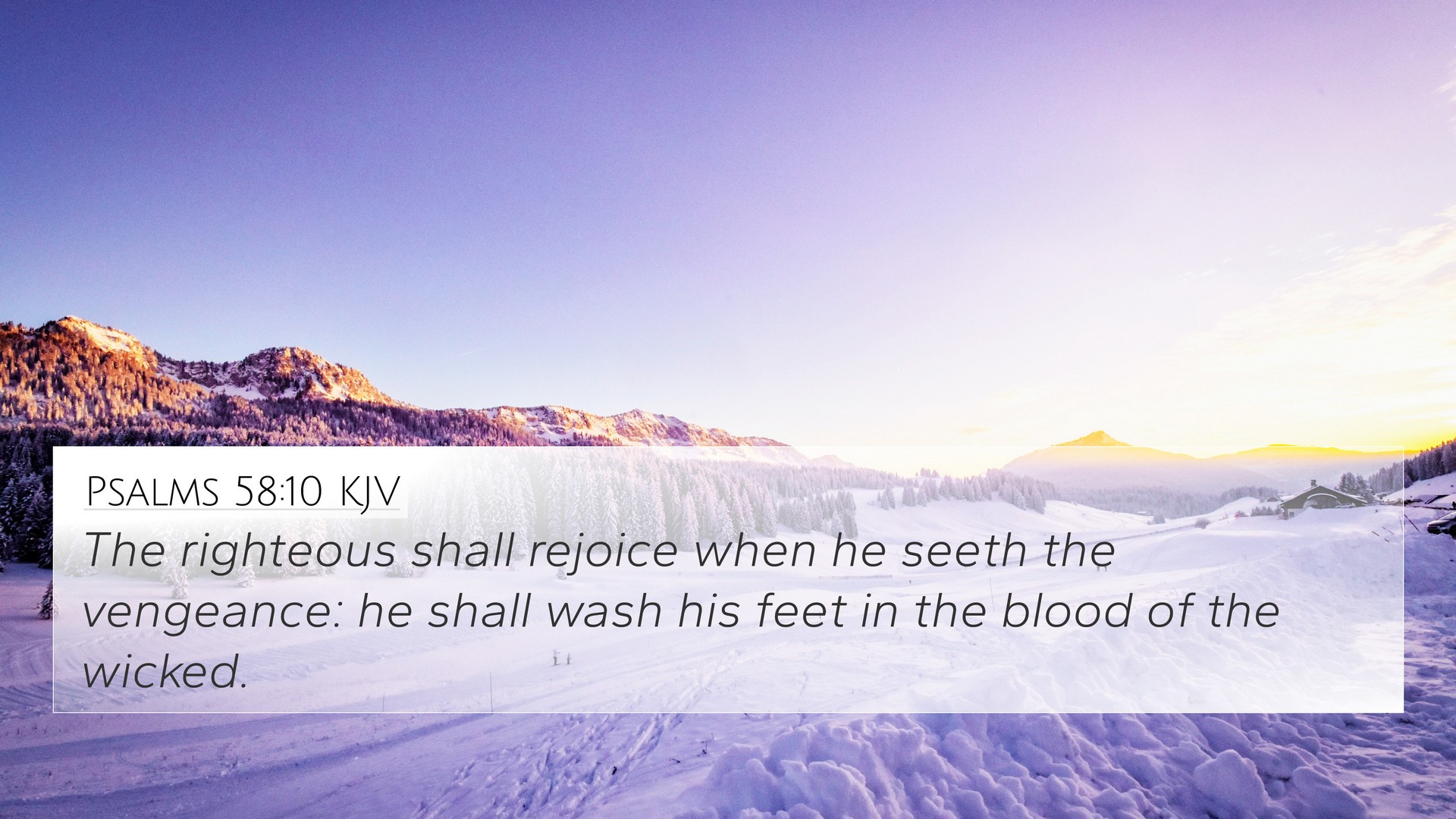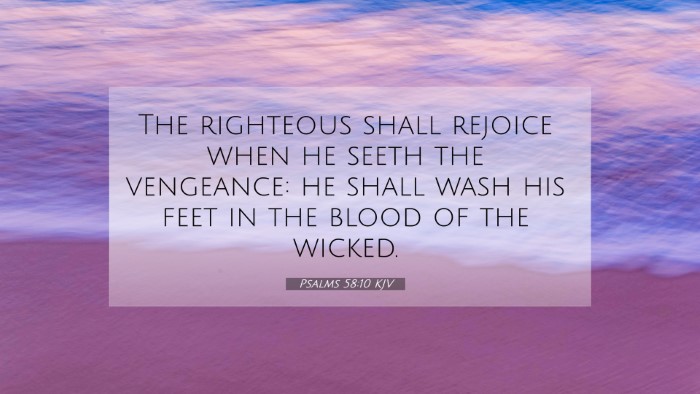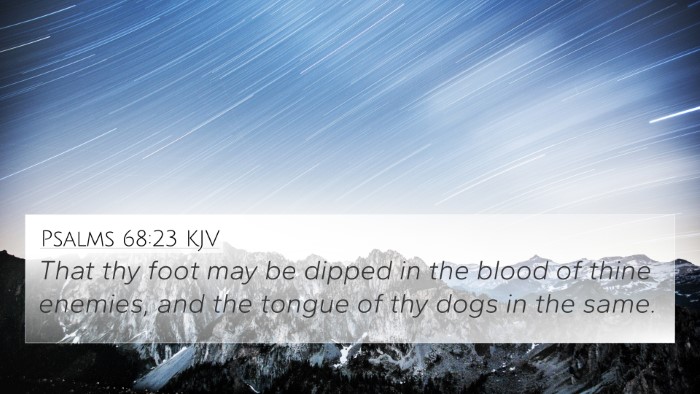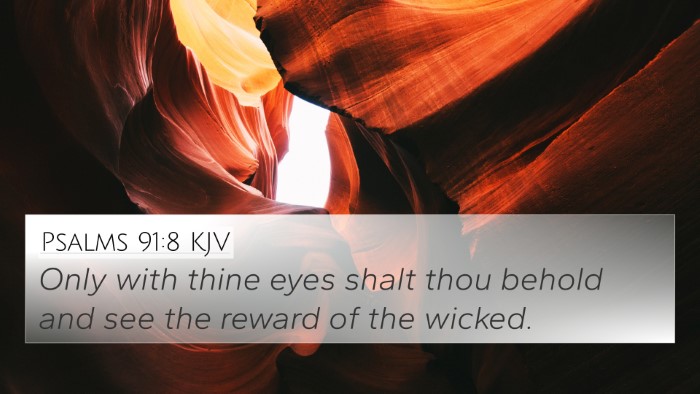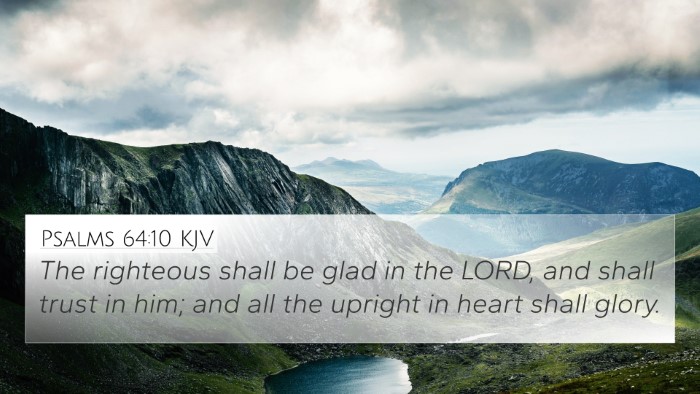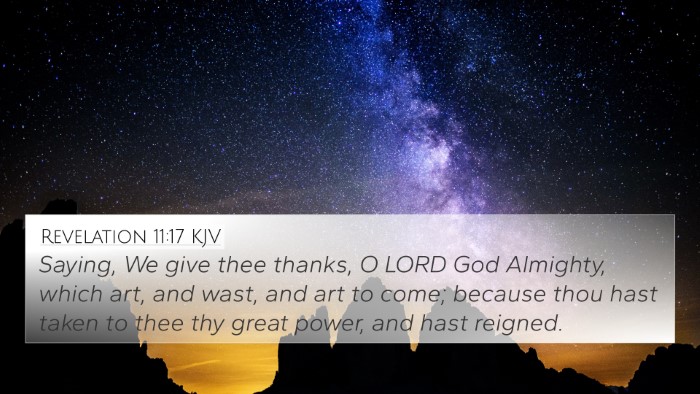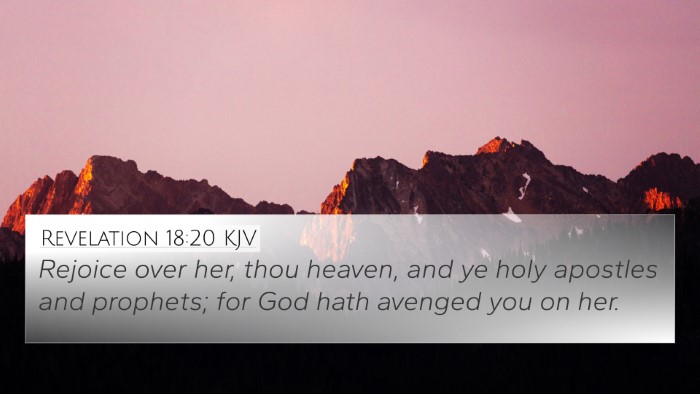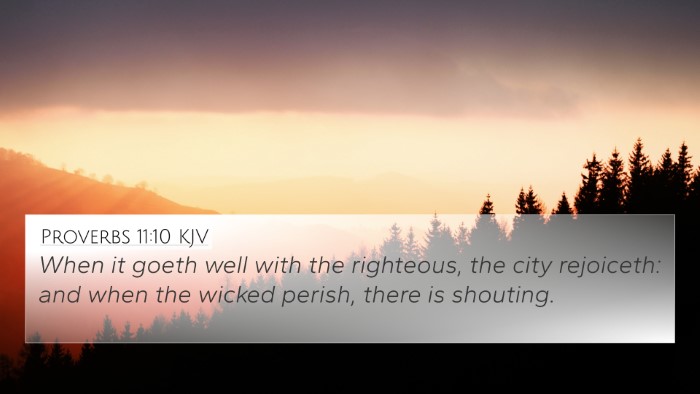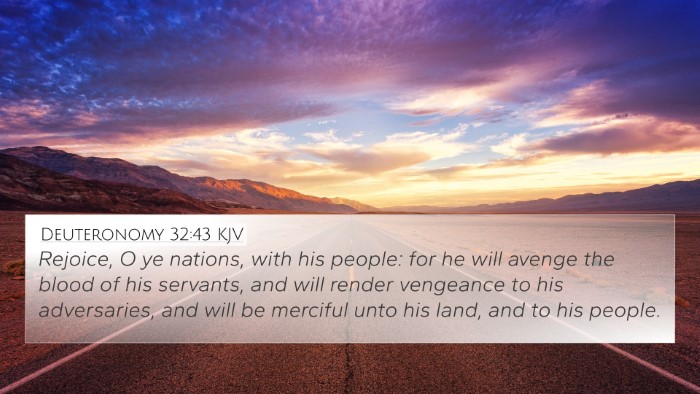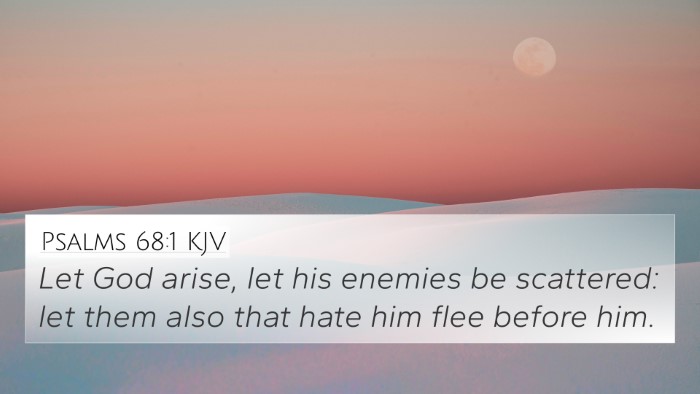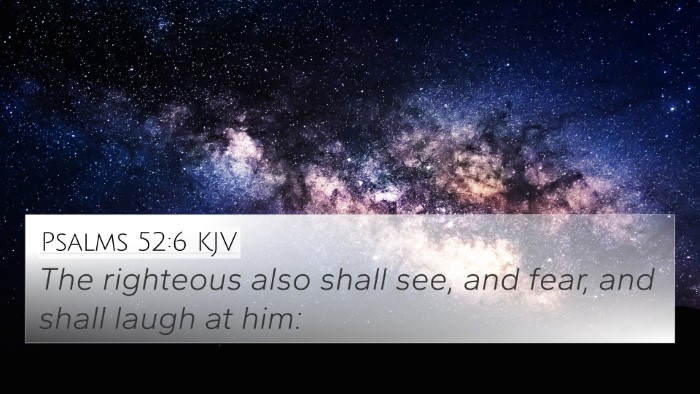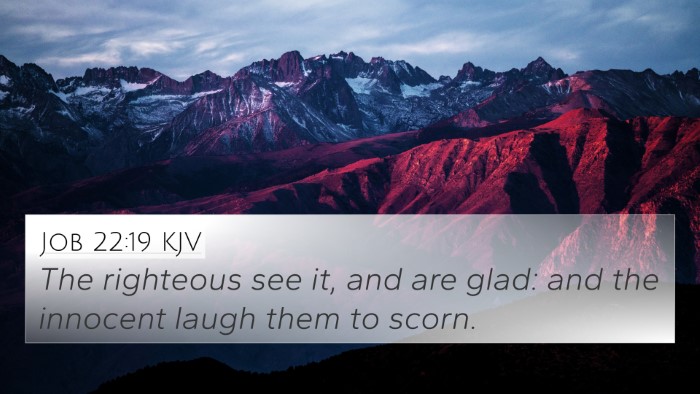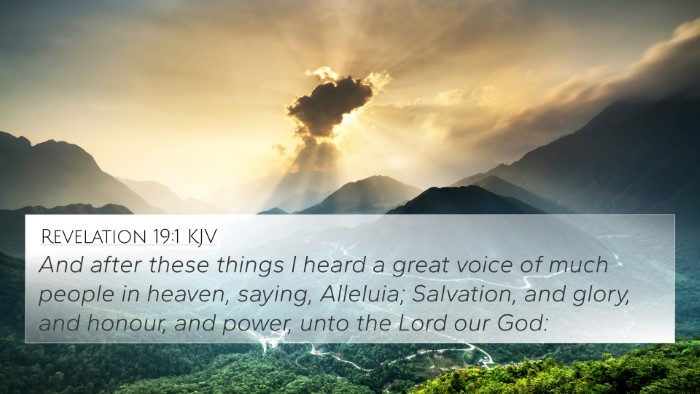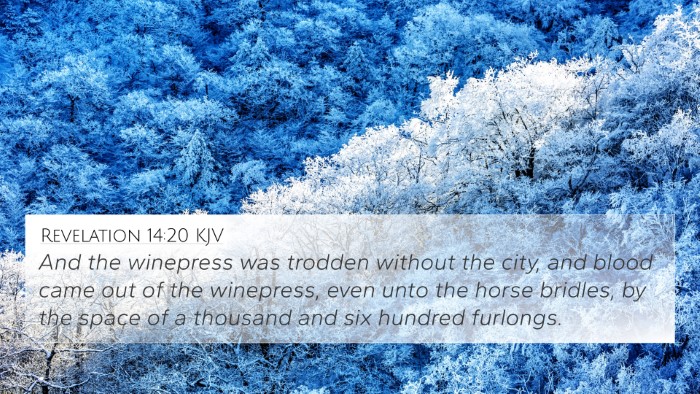Understanding Psalms 58:10
Psalms 58:10 states, "The righteous shall rejoice when he seeth the vengeance: he shall wash his feet in the blood of the wicked." This verse encapsulates a profound truth regarding the fate of the wicked versus the rewards of the righteous. Below is a summarized interpretation of this verse based on insights from public domain commentaries, which helps elucidate its meaning.
Summary of Key Insights
- Matthew Henry's Commentary: Matthew Henry emphasizes the triumph of the righteous over the wicked. He elaborates that when justice is served, it brings joy to the righteous, as they witness the downfall of evil. The imagery of washing feet in blood signifies complete victory and liberation from oppression.
- Albert Barnes' Notes: Barnes notes that this verse reflects God's ultimate justice; the righteous will see the consequences of wickedness, leading to their joy. The act of washing one's feet in blood symbolizes a thorough cleansing and the idea that the wicked are utterly defeated.
- Adam Clarke's Commentary: Adam Clarke discusses the metaphorical aspect of the verse, interpreting the blood as a representation of the righteous judgment of God upon those who do evil. It illustrates the severity of God's justice and a righteous reprisal against sin.
Thematic Connections
This verse enhances our understanding of divine justice and the moral order of the universe. It establishes a direct connection between the actions of the wicked and the retribution they will face. This theme resonates throughout scripture, illustrating how God ultimately vindicates the faithful.
Bible Verse Cross-References
To further explore the themes found in Psalms 58:10, we can turn to several cross-referenced verses:
- Psalm 37:34 - "Wait on the Lord, and keep his way, and he shall exalt thee to inherit the land: when the wicked are cut off, thou shalt see it."
- Proverbs 11:21 - "Though hand join in hand, the wicked shall not be unpunished: but the seed of the righteous shall be delivered."
- Romans 12:19 - "Dearly beloved, avenge not yourselves, but rather give place unto wrath: for it is written, Vengeance is mine; I will repay, saith the Lord."
- Revelation 19:2 - "For true and righteous are his judgments; for he hath judged the great whore, which did corrupt the earth with her fornication, and hath avenged the blood of his servants at her hand."
- Matthew 13:41-42 - "The Son of man shall send forth his angels, and they shall gather out of his kingdom all things that offend, and them which do iniquity; And shall cast them into a furnace of fire: there shall be wailing and gnashing of teeth."
- 2 Thessalonians 1:6 - "Seeing it is a righteous thing with God to recompense tribulation to them that trouble you."
- Psalm 58:6 - "O God, break their teeth in their mouth: break out the great teeth of the young lions, O Lord."
Connections Between Bible Verses
Psalms 58:10 creates an inter-Biblical dialogue with the above verses, weaving a thematic exploration of justice and retribution. The connections between these scriptures highlight the consistent biblical narrative that affirms God's sovereignty, moral order, and the eventual downfall of the wicked.
Conclusion
In conclusion, Psalms 58:10 serves as a powerful reminder of the ultimate victory of righteousness over wickedness. By utilizing tools for Bible cross-referencing, such as biblical concordances or cross-reference guides, readers can deepen their understanding of this verse and its surrounding themes. Cross-referencing biblical texts allows us to study how different scriptural themes interact and reinforce each other.
Further Study Suggestions
For those interested in a deeper exploration of the themes within Psalms 58 and its connections to other biblical passages, consider the following study methods:
- Utilize a Bible Cross-reference Guide to identify additional verses related to the themes of justice and righteousness.
- Engage in Comparative Bible Verse Analysis by examining similar verses across the Old and New Testaments.
- Explore Bible Chain References that connect different themes related to God's judgment and retribution.
- Practice Cros-referencing Bible Study Methods to create comprehensive understandings of biblical narratives.
